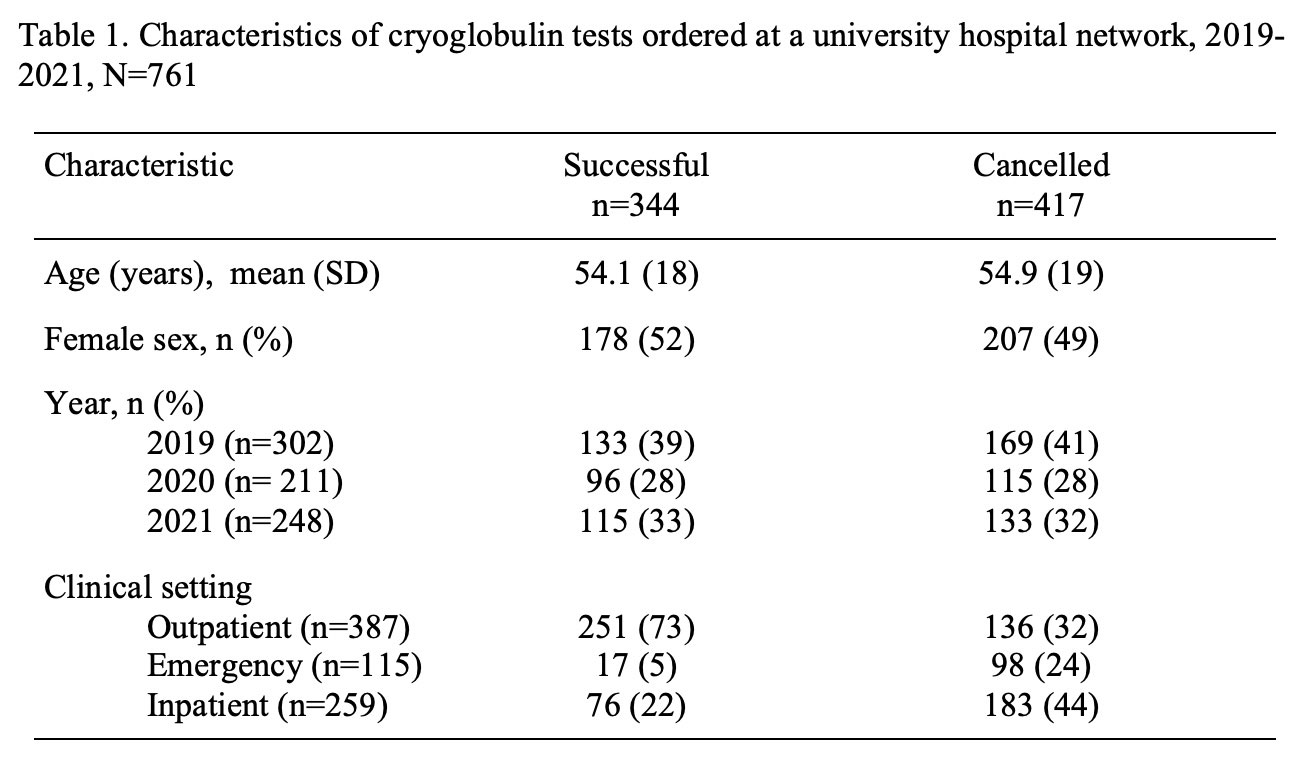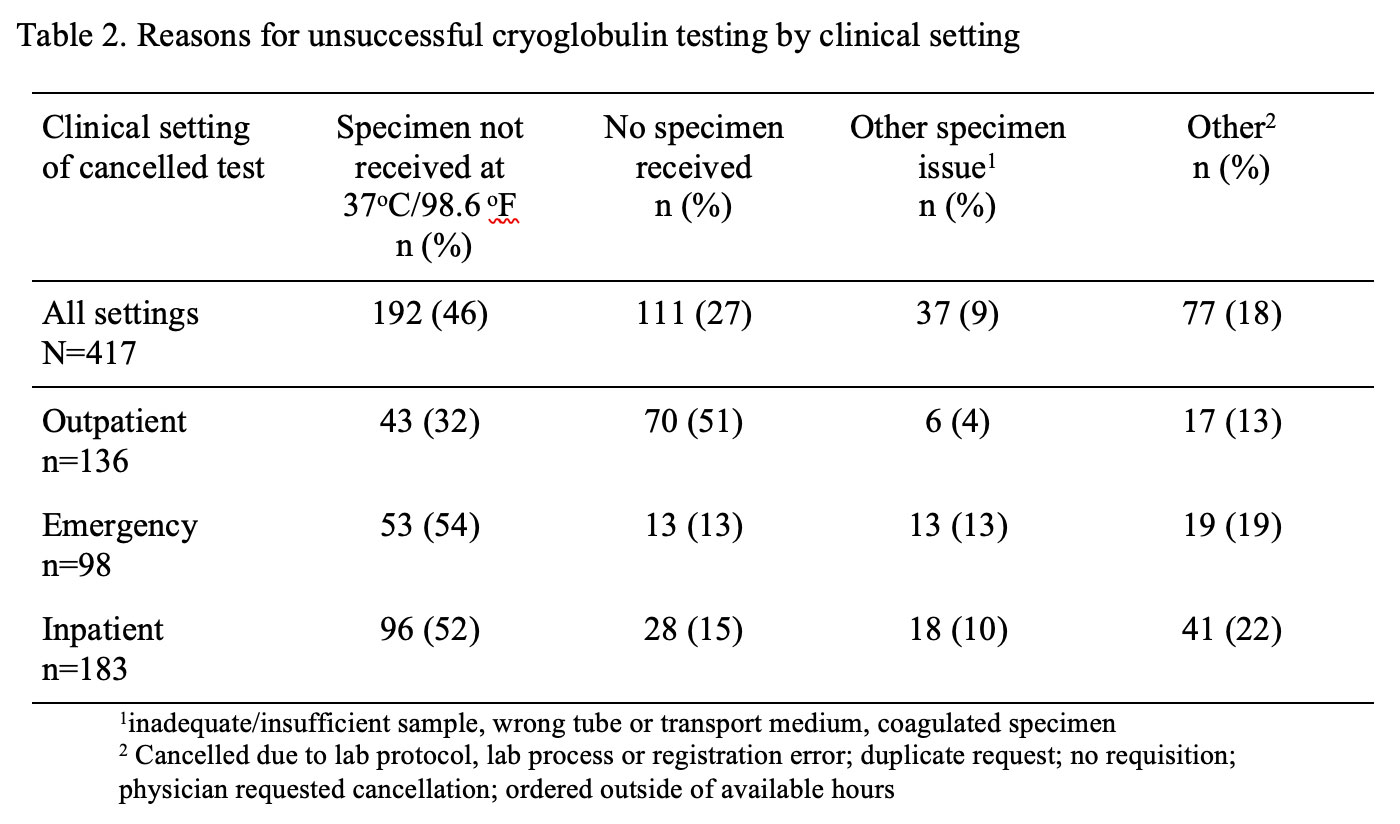Session Information
Session Type: Poster Session C
Session Time: 1:00PM-3:00PM
Background/Purpose: Cryoglobulin detection is essential for the diagnosis of cryoglobulinemic vasculitis, a condition leading to high healthcare use, organ damage, and even death. Successful cryoglobulin testing requires specific sample collection, transport, and preparation procedures, leading tests to be cancelled if appropriate conditions are not met. We evaluated successful and unsuccessful (i.e., cancelled by the laboratory) cryoglobulin testing at our institution.
Methods: We extracted data on all cryoglobulin tests ordered at a university-affiliated hospital network (4 adult sites, 1 paediatric) between January 2019-November 2021. We collected patient demographics, year of test, clinical setting where the test was ordered (ambulatory, emergency department [ED], or inpatient), and whether the testing was ultimately successful. Multivariable logistic regression analysis (generalized estimating equation method) assessed factors associated with cancelled cryoglobulin testing. Covariates included patient age, sex, year of test, and clinical setting. We determined the most frequent reasons for cryoglobulin cancellation, overall and stratified by clinical setting.
Results: Of 761 consecutive cryoglobulin tests ordered within the hospital network, 259 (34%) were ordered for inpatients, 387 (51%) for outpatients, and 115 (15%) for patients in the ED (Table 1). Mean patient age at the time of testing was 54.5 years (standard deviation, 18.5), 384 (50%) were female, and 197 (26%) were repeated tests for the same patient. Cryoglobulin tests were cancelled in 417 (55%) cases. In multivariable analysis, no differences in age, sex, or calendar year were observed between successful and cancelled tests. However, cryoglobulins ordered in inpatient/ED settings were more likely to be cancelled compared to those ordered among outpatients (adjusted odds ratio 5.6, 95% CI 4.1, 7.7). Overall, the most frequent reason for cancellation was that the specimen was not received at 37oC/98.6 oF (46%), although among outpatient tests, the most frequent reason (51%) was that no specimen was ever received.
Conclusion: At our institution, cryoglobulin tests are cancelled more than half the time they are ordered, potentially leading to delayed diagnoses and repeat patient visits or blood draws. Optimizing systems of sample collection and transportation in the context of busy inpatient and emergency environments might increase successful cryoglobulin testing, saving precious resources and reducing potentially dangerous diagnostic delays.
To cite this abstract in AMA style:
Lee J, Baass A, Bernatsky S, Vinet E, Mendel A. Less Than Half of Cryoglobulin Tests Ordered at a Tertiary Hospital Network Are Successfully Completed: An Opportunity for Improvement [abstract]. Arthritis Rheumatol. 2022; 74 (suppl 9). https://acrabstracts.org/abstract/less-than-half-of-cryoglobulin-tests-ordered-at-a-tertiary-hospital-network-are-successfully-completed-an-opportunity-for-improvement/. Accessed .« Back to ACR Convergence 2022
ACR Meeting Abstracts - https://acrabstracts.org/abstract/less-than-half-of-cryoglobulin-tests-ordered-at-a-tertiary-hospital-network-are-successfully-completed-an-opportunity-for-improvement/


